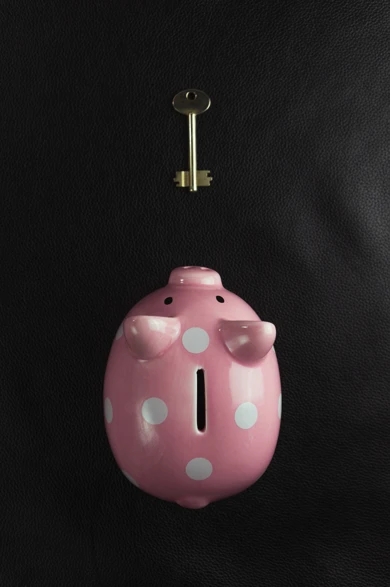With the right strategy, it is more than possible to regain control of your finances and pave the way towards a debt-free future. This article will provide practical and actionable steps to help you to reduce your debt. Let’s dive straight into it.
Create a comprehensive budget
The first step on your debt reduction journey is creating a detailed and comprehensive budget that outlines all of your income, expenses, and financial obligations. This would include monthly debits and any debt you need to pay back.
Once you have this in place, take an honest look at your spending habits and identify areas where you can cut back. Prioritise essential expenses while minimising non-essential ones. A well-planned budget will help you allocate funds towards debt repayment and prevent further accumulation of debt.
Cut expenses and increase income
The ultimate goal is to get rid of your debt once and for all, but we understand that can feel like an arduous process. Once you have a budget, you can look for ways to make meaningful savings. While every little bit counts, you’ll see more progress if you cut larger unnecessary expenses. Even cutting a few smaller things could amount to significant savings per month.
Simultaneously, it can certainly help to find opportunities to boost your income, if you’re able. Consider picking up a side gig or freelancing, which can be lucrative if you have the time and skillset. Increasing your cash flow, both through savings and additional income, can help you make a serious dent in your debt.

Track your spending
It's vital that you monitor your spending habits and identify areas where you may be overspending. Sometimes it’s subconscious and other times you may be hitting one of your spending triggers.
Keep track of your expenses by using apps or software that categorise your transactions. By understanding your spending patterns, you can make informed decisions and redirect those funds towards paying down your debts.

The snowball or avalanche debt repayment method
When tackling multiple debts, consider using either the snowball or avalanche method to prioritise your repayments. The snowball method involves paying off your smallest debts first, gaining momentum as you move on to larger ones. This method provides a psychological boost, since you can celebrate each debt you clear.
The avalanche method, on the other hand, focuses on paying off high-interest debts first, minimising the total interest you’d pay over time. We recommend choosing a method that aligns with your financial goals and motivates you the most.
You may find that it’s better to lump all your debt into one, meaning you only have one payment to make each month, with a consistent interest rate. You will need to take out a debt consolidation loan in order to do this so it is worth speaking to a debt adviser.
Negotiate lower interest rates
Reach out to your creditors and explore options for negotiating lower interest rates, as high interest rates make paying off your debt much harder. We recommend approaching them with a payment plan in place, as a demonstration of your commitment could help you secure more favourable terms.
Seek professional advice
If you're struggling to make headway on your own, consider speaking with a financial adviser or debt counsellor. These professionals have specific expertise in the industry and can help you devise a tailored plan for reducing debt and regaining control of your finances. They can provide insights into debt management strategies and offer personalised advice based on your unique situation.
Reducing mortgage debt
We understand that a mortgage is a substantial financial commitment and it’s likely one of your largest areas of debt. While it’s not always feasible to clear a mortgage, you can take a few steps to lower your payments.
Make additional payments
Whenever possible, consider making extra payments towards your mortgage principal, or the amount you owe in total. Even small additional amounts can have an impact over the long term, reducing both the principal and interest paid on your mortgage. It’s important to note that paying too much into your mortgage could incur an early repayment charge, so it’s best to speak with your lender or mortgage adviser first.
Consider remortgaging
It could be worth exploring the possibility of remortgaging to secure a lower interest rate or extend the repayment term. Remortgaging could help you reduce your monthly payments, freeing up more funds to allocate towards other debts.
Move to an interest-only mortgage
Interest-only mortgages involve payments on only the interest accrued on your mortgage, rather than you making monthly payments towards lowering the principal amount. This could significantly lower your monthly repayments, freeing up money to put towards lowering your other debts. You can move back to a standard mortgage again or not, though if you remain on an interest-only mortgage you will need to have a plan in place to repay the outstanding principal amount. Read more about interest-only mortgages here.
Expert advice about your mortgage
Remember, the journey to reducing debt is a marathon, not a sprint. It may take time and effort, but your hard work will pay off. Be sure to celebrate each milestone along the way, whether it’s paying off a credit card or making an extra mortgage payment.
Stay focused on your goals and maintain a positive mindset wherever possible.
If you’d like to consider how you can change your mortgage to better suit your current needs and circumstances, get in touch with one of our team today for a free initial consultation.
Important information
Your home may be repossessed if you do not keep up repayments on your mortgage.
There may be a fee for mortgage advice. The actual amount you pay will depend on your circumstances. The fee is up to 1% but a typical fee is 0.3% of the amount borrowed.




